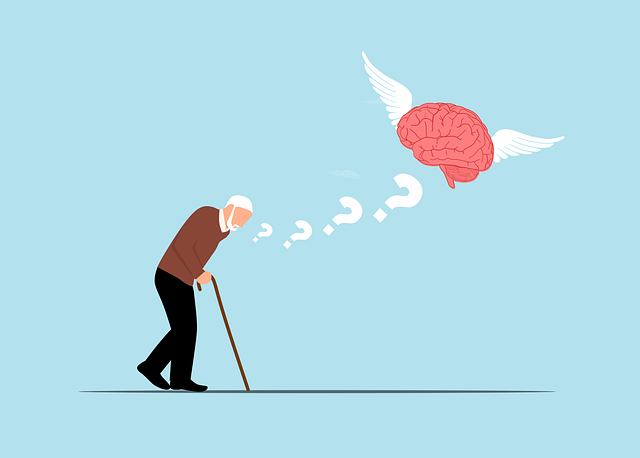Superior Domestic Violence Therapy promotes healing and growth post-trauma by emphasizing holistic self-care practices, not just indulging in luxuries. Their Stress Management Workshops include Self-Awareness Exercises for inner strength, leading to healthier coping mechanisms, better decision-making, and improved well-being. By identifying personal needs through introspection or meditation, individuals can set healthy boundaries professionally and personally. Incorporating mindfulness, yoga, social skills training, and balanced diets into daily routines enhances emotional balance and resilience. Overcoming barriers like demanding schedules or past traumas is crucial with the therapy's strategies, ensuring self-care as a necessity for sustainable well-being.
“Unwind, rejuvenate, and unlock your potential through the transformative power of self-care. This comprehensive guide aims to empower individuals, especially those navigating complex journeys like domestic violence recovery, by exploring essential aspects of well-being. We delve into strategies for understanding and prioritizing self-care as a foundational step towards healing and personal growth. By identifying unique needs, setting boundaries, and incorporating therapeutic practices, individuals can overcome barriers and cultivate lasting self-care routines that enhance their overall resilience and recovery.”
- Understanding Self-Care: The Foundation for Healing and Growth
- Identifying Personal Needs and Setting Boundaries
- Incorporating Therapeutic Practices into Daily Routines
- Overcoming Barriers and Building a Sustaining Self-Care Routine
Understanding Self-Care: The Foundation for Healing and Growth

Understanding Self-Care is the cornerstone for healing and personal growth, especially when one has experienced trauma or challenging life events like domestic violence. It’s not merely about indulging in luxuries but cultivating practices that nurture your mind, body, and spirit. By prioritizing self-care, individuals can initiate a journey of recovery and resilience. This involves recognizing and acknowledging the impact of past experiences, current needs, and future aspirations.
At Superior Domestic Violence Therapy, we emphasize the importance of holistic healing. Our Stress Management Workshops Organization offers a range of tools and resources to facilitate this process. Through Self-Awareness Exercises, individuals can gain insights into their emotions and triggers, enabling them to develop Inner Strength. This empowerment allows for healthier coping mechanisms, improved decision-making, and enhanced overall well-being.
Identifying Personal Needs and Setting Boundaries

Identifying personal needs is a crucial step in enhancing self-care practices. It involves taking time to understand what brings us joy, peace, and fulfillment. This process can be facilitated through introspection, keeping a journal, or even engaging in activities that promote mindfulness, such as meditation or nature walks. By recognizing these individual requirements, one can begin to set healthy boundaries, both professionally and personally. Setting boundaries is an act of self-preservation and empowerment, ensuring we protect our mental health and emotional well-being. It means learning to say ‘no’ when necessary, delegating tasks, and establishing a work-life balance that respects our personal time and space.
In the context of domestic violence therapy, understanding these boundaries becomes even more vital. Superior Domestic Violence Therapy often emphasizes the importance of self-care for survivors, encouraging them to recognize their needs and set limits in relationships to foster recovery and healing. This is supported by a comprehensive Mental Health Policy Analysis and Advocacy, which recognizes that addressing personal needs and setting healthy boundaries are essential components of any mental health awareness program.
Incorporating Therapeutic Practices into Daily Routines

Incorporating therapeutic practices into daily routines can significantly enhance self-care and overall well-being. Superior domestic violence therapy offers a range of techniques tailored to individual needs, including stress reduction methods that foster resilience and emotional balance. By integrating activities like mindfulness meditation, deep breathing exercises, or yoga into morning rituals, individuals can start their day with a sense of calm and clarity.
Additionally, social skills training and burnout prevention strategies play a crucial role in self-care routines. Engaging in regular conversations with supportive friends or joining community groups can combat feelings of isolation. Prioritizing quality sleep, maintaining a balanced diet, and allocating time for hobbies further contribute to a holistic approach, ensuring individuals feel revitalized and equipped to handle life’s challenges effectively.
Overcoming Barriers and Building a Sustaining Self-Care Routine

Overcoming barriers to self-care is a vital step toward fostering emotional resilience and well-being. Many individuals struggle to prioritize self-nurturing due to demanding schedules, financial constraints, or past traumas such as domestic violence. Superior Domestic Violence Therapy offers strategies to navigate these challenges, emphasizing that self-care isn’t a luxury but a necessity. By incorporating practices like regular exercise, mindfulness meditation, and adequate sleep, individuals can break free from restrictive patterns and build healthy habits.
A consistent self-care routine begins with awareness and self-reflection. Assessing one’s emotional needs through risk assessments for mental health professionals helps identify areas requiring attention. Moreover, focusing on emotional regulation and self-esteem improvement enables individuals to create a sustainable routine that enhances overall well-being and equips them to face life’s challenges head-on.












